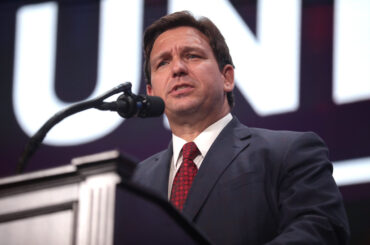The Inception of the Dispute
Following a significant court setback, the leadership of the Nevada Republican Party is preparing for a prolonged legal battle to overturn a law enacted two years ago, which mandates the state to conduct a presidential primary. Despite this law, the party is adamant about sticking to its traditional caucus-based approach for selecting GOP delegates for the national convention. This insistence comes after their motion to halt the state-run primary was denied by a Nevada District Court, sparking discussions about an appellate challenge. The party’s stance reflects a deeper commitment to traditional electoral processes and a resistance to state-led initiatives that they believe could alter the political landscape. For more details on this developing situation, see the coverage by The Nevada Independent.
The Controversy Over Primary vs. Caucus
At the heart of this conflict is the clash between the state-mandated primary and the party-run caucus. Nevada GOP Chair Michael McDonald has voiced concerns over the state-run primary, criticizing it as a wasteful expenditure that diminishes voter influence. This primary system, established under the governance of former Democratic Governor Steve Sisolak, organizes the presidential primary through state and county officials. While this approach is favored by Nevada Democrats for its accessibility, the Republican Party is not legally bound to accept its outcome for their general election nominations. The dispute highlights differing perspectives on electoral processes and raises questions about the most effective methods for engaging voters and ensuring fair representation.
Legal Implications and Arguments
The legal action initiated by Republican National Committeewoman Sigal Chattah against Secretary of State Cisco Aguilar hinges on constitutional grounds. The lawsuit argues that the 2021 law violates the First and Fourteenth Amendments, particularly concerning freedom of association. This contention centers around the belief that political parties should have autonomy from state intervention. In response, the Office of Attorney General Aaron Ford, representing Secretary Aguilar, has maintained that the state law does not compel the Republican Party to adhere to the primary results and that it does not prescribe how primary elections are conducted by major parties. The intricacies of this legal debate underscore the tension between state authority and party autonomy, reflecting a broader dialogue about the balance of power in the electoral process. The Potential Outcomes and Consequences
As the Nevada GOP braces for a tough legal battle, the likelihood of simultaneous state-run primaries and party-run caucuses poses a unique electoral dilemma. Should the party honor the caucus results, the outcomes of the state-run primary may be rendered insignificant. This scenario underlines the complex interplay between state legislation and party autonomy in the American political system. The unfolding situation in Nevada could set a precedent for future electoral practices and challenges, making it a significant case study in the evolution of American politics.



